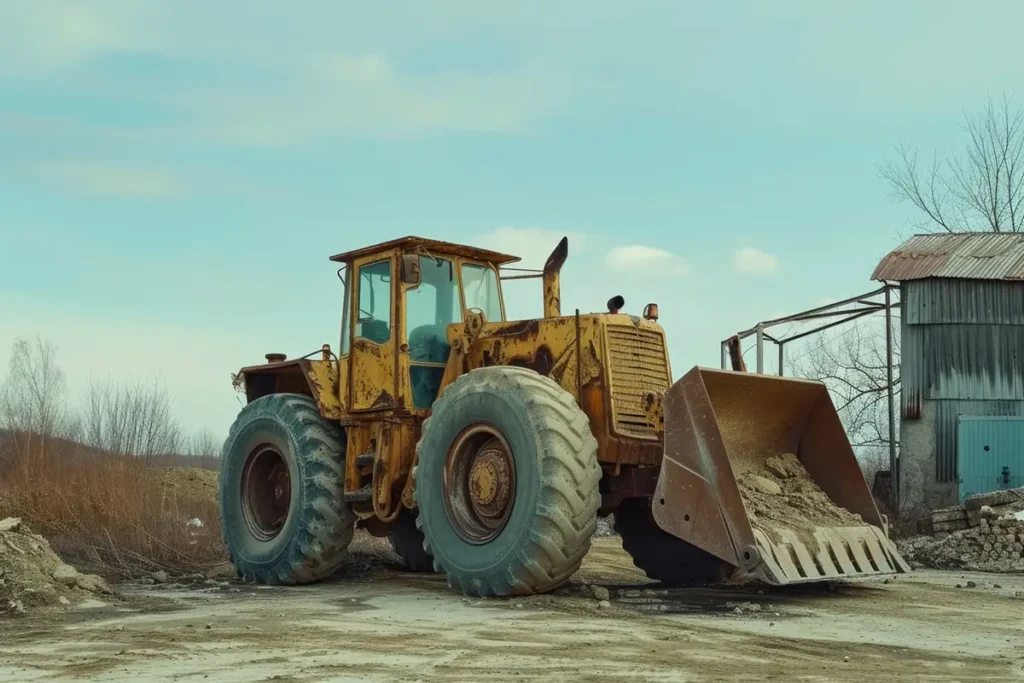
Stages of Construction Site Preparation
Construction site preparation is a crucial start for any construction project. It involves a series of important tasks, the careful execution of which is critical for the successful progress of subsequent construction works. Properly prepared construction sites not only ensure a safe working environment but also impact construction efficiency and, ultimately, the quality of the building.
On this page, we will provide comprehensive information about the construction site preparation process, including detailed answers to frequently asked questions, as well as tips and recommendations for successful construction site preparation.
Why is construction site preparation important?
A well-prepared construction site offers several essential benefits:
- Efficiency: A properly prepared construction site allows for the optimization of the construction plan and avoids delays.
- Efficiency: A properly prepared construction site allows for the optimization of the construction plan and avoids delays.
- Quality: A stable and level foundation is crucial for building a quality structure.
- Cost: Careful planning and preparation can help reduce unforeseen expenses during construction.
Stages of Construction Site Preparation
The construction site preparation process involves several sequential stages that must be carried out according to regulations and project specifications:
- Permits and Documentation: Before starting construction, all necessary permits must be obtained from the municipality and other relevant authorities. A construction project must also be developed, and all necessary approvals obtained.
- Demolition Works: If there are old buildings or structures on the construction site, they must be demolished. Demolition work must be carried out professionally and in compliance with safety requirements.
- Identification and Removal of Hazardous Materials: A thorough inspection of the site must be conducted to identify potentially hazardous materials, such as asbestos, lead, or PCBs. The proper disposal of these materials should be entrusted to experienced specialists.
- Earthworks: This includes excavation, soil removal, and leveling of the site surface. The scope and specifics of earthworks are determined by the construction project.
- Relocation or Demolition of Engineering Communications: If there are engineering communications (water supply, sewerage, electricity) on the construction site, they may need to be relocated or dismantled. These works should only be carried out by qualified specialists with appropriate permits.
- Site Marking and Fencing: The construction site must be marked with visible signs and fenced to ensure safety and restrict access to unauthorized persons.
- Construction Waste Management: Waste generated during construction must be sorted and taken to a licensed waste disposal site according to environmental regulations.
Construction Site Preparation Services
We offer a wide range of construction site preparation services, covering all the aforementioned stages. Our experienced team can ensure that your site is properly prepared for construction.
Construction site preparation is the process of performing all necessary tasks to prepare a construction site for subsequent construction works. It includes:
- Demolition works (demolition of old buildings, removal of floor coverings, and other unwanted elements).
- Identification and removal of hazardous materials (such as asbestos).
- Earthworks (excavation, soil removal, preparation of the site for foundation installation).
- Relocation or demolition of engineering communications (electrical wiring, sewerage, water supply).
- Site marking and fencing.
A carefully prepared construction site provides several benefits:
- Safety: Timely removal of hazardous materials and elements reduces the risk of accidents during construction.
- Efficiency: A properly prepared construction site allows for the optimization of the construction plan and avoids delays.
- Quality: A stable and level foundation is essential for building a quality structure.
- Cost: Careful planning and preparation can help reduce unforeseen expenses during construction.
- Permits and Documents: Before starting construction site preparation work, all necessary permits must be obtained from the municipality and other relevant authorities.
- Communication: It is important to inform neighbors in advance about the planned work and possible disturbances.
- Construction Waste Management: A plan must be developed for the collection and disposal of waste generated on the construction site.
- Safety Measures: All necessary safety requirements must be observed on the construction site to protect workers and the surrounding area.
